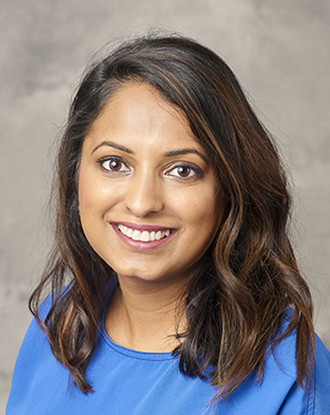Better with Age

PacMed expert gives insight on healthy aging
It’s no secret that getting older isn’t quite what younger versions of ourselves hoped it to be. As years pass, bedtimes are traded for backaches; summer vacations are forfeited for overtime; and the youthful, spritely mentality we once took for granted wanes as our age makes the steady numerical climb. Fortunately, there is a silver (pun intended) lining to aging — it’s entirely possible to live a fruitful life by being steadfast in the pursuit of health. Like a fine wine, it is possible for people to get better with age. Pacific Medical Centers’ Family Practice Physician Dr. Priyanka Naik, DO, is here to explain how this is possible.
Aging is inevitable, naturally. Although changes to the mind and body are par for the course, what steps can people take to ensure longevity and long-term health?
It’s important to lead an all-around healthy lifestyle, both physically and mentally. This can be done by making permanent, positive lifestyle changes that are sustainable in the long term. For example, the American Cardiology Association recommends moderate-intensity exercise for 150 minutes each week, or high-intensity exercise for 75 minutes each week. When it comes to eating, the Mediterranean diet is incredibly heart healthy and supports long-term health. Lastly, I recommend exploring meditation as a way to reduce stress and live a mentally healthy life.
What exams should men and women receive on a regular basis to keep tabs on their health?
Age-related preventive screening is the key. For females, regular Pap smears, breast cancer screenings and colon cancer screenings are incredibly important. Males should also be getting colon cancer screenings, along with regular prostate checks. In general, it’s vital for all to receive their routine recommended vaccines, and annual preventive visits are the perfect time to discuss this with your primary care provider.
The life of military personnel can be demanding and stressful. What suggestions do you have for aging individuals with busy lifestyles?
I always recommend establishing a go-to exercise routine and making it part of your lifestyle, rather than a chore. Busy lifestyles can also make it difficult to focus on nutrition, but I believe a balanced diet should always remain a priority. Lastly, carve out time in your week to focus on yourself with an activity such as meditating, reading or taking a walk outside. Personal time is a great way to relax and ease the stresses of everyday life.
What daily habits can be adopted as we age to combat the negative aspects of aging?
Adequate sleep, balanced nutrition and regular exercise are three key habits of a healthy lifestyle. Everyone has the power to take control of their own health. Establishing routine care with a primary care provider to discuss your goals at least once a year is a great way to do this. It’s also important to simply acknowledge changes that may be going on with your physical and mental health, embrace it and take action accordingly.
Is there anything else you would like readers to know about healthy aging?
Aging is inevitable, but everyone should certainly feel empowered to be in charge of their own health. I also encourage everyone to seek a primary care provider’s help, as it can be incredibly beneficial in understanding your personal risk factors for certain diseases based on family history. Prevention is always the key, and that is why annual checkups are so critical.



